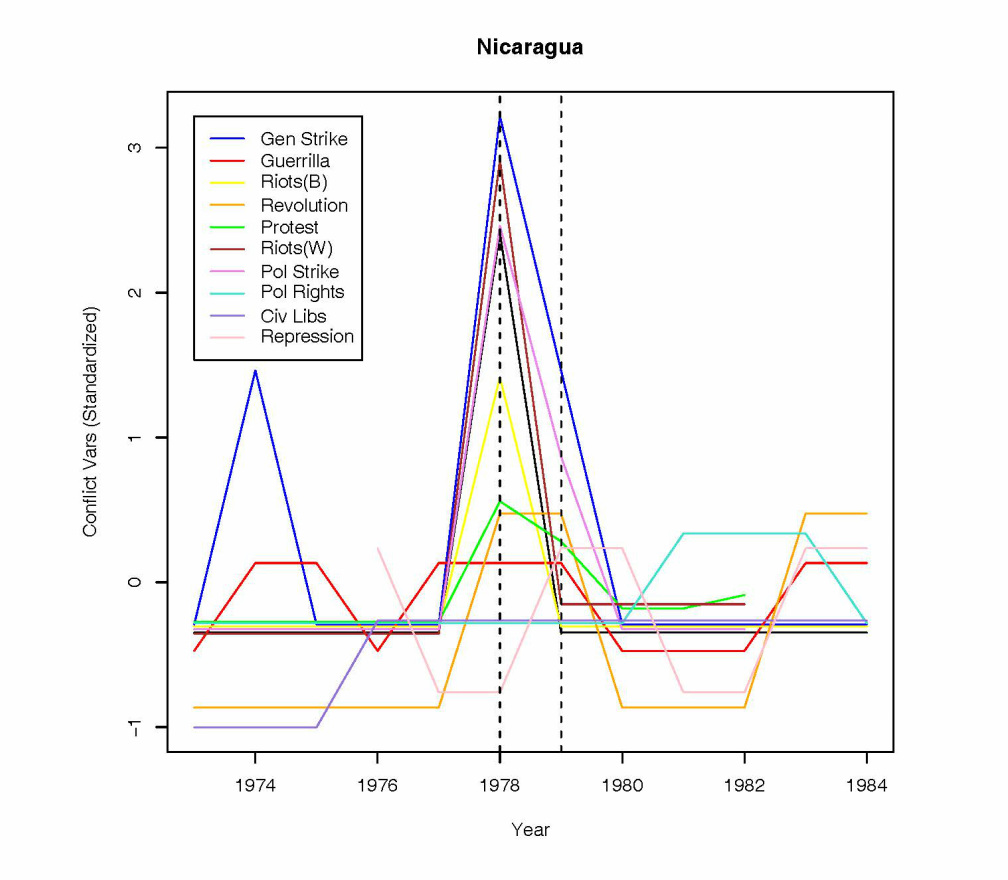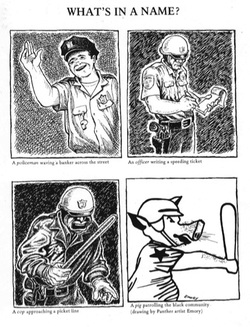
With renewed discussion of Human Security Report and Jay Ulfelder's reflection about the possibility of declining violence, I wished to step back or to the side for a second. At present, much of the discussion about trends in violence is problematic.
First, much of the discussion seems to be based on war - both the interstate and civil varieties. These are of course historically important but they are not the only games in town. Indeed, by some accounts, these have been side shows to the arguably more lethal state sponsored mass killings like the destruction of native americans in the us, jews and others during the holocaust or mass purges of the Stalinist and Maoist regimes. Steven Pinker also talks about homicide but essentially he seems to be talking about what takes place in Europe. What of the rest of the world? Detroit and the Democratic Republic of Congo are not trending downward anytime soon.
Second, the current discussion seems to conflate perpetrators in an unsettling way. Homicide is undertaken by ordinary citizens; terrorism, insurgency and revolution by behavioral challengers; and genocide and most human rights violations by governments. These all take the same types of cues and respond to means, motive as well as opportunity in the same ways? Ummmmmmmm.
Third, there seems to be little discussion about the substantive meaning of the trend. A lower or declining number is believed to be better but I would like to reflect on this for a few minutes.
If political authorities no longer kill those under their jurisdiction because they have subdued, beaten, "pacified" the relevant populations (e.g., removed challenging ideas to those in power and those associated with them), does this mean that things have actually gotten better? I can see the logic of saying yes as there are fewer dead bodies but I can also see this as limiting as it does not prompt us to assess the quality of life for the bodies that are left walking around.
Before I am accused of saying that some people are better off dead, let me clarify. Within the trendology discussion there appears to be little discussion regarding what the live bodies do/think/feel that are left on the earth. If we were found to live in a world where we were less likely to be killed but we were all only thinking one idea (insert random idea here), is this a world that we would like to be in? I think the question merits consideration.
Accordingly, I would like to see and will participate in a more detailed conversation about the causal mechanisms driving the trends under discussion. We may be in a "long peace" but if "peace" is only conceived of as non-violence, then I would suggest that that peace is an empty one. I do not wish to only live in a world that is only less violent (a conclusion that I am not willing to completely accept yet). I also wish to live in a world that is more diverse in terms of ideas regarding how we should/could/ought to live. I wish to live in a world where the different people of the world are respected for the beliefs that they have held throughout time not the ones they are wiling to adopt as they move forward. I wish to live in a world that is more equitable, which is something that rarely enters into these discussions about trends. Finally, I wish to feel more not less connected to those around me (insert crack about social media and video games here). In short, I wish to have a deeper conception of life beyond violence/non-violence. All I am saying is "give peace a chance".


 RSS Feed
RSS Feed
